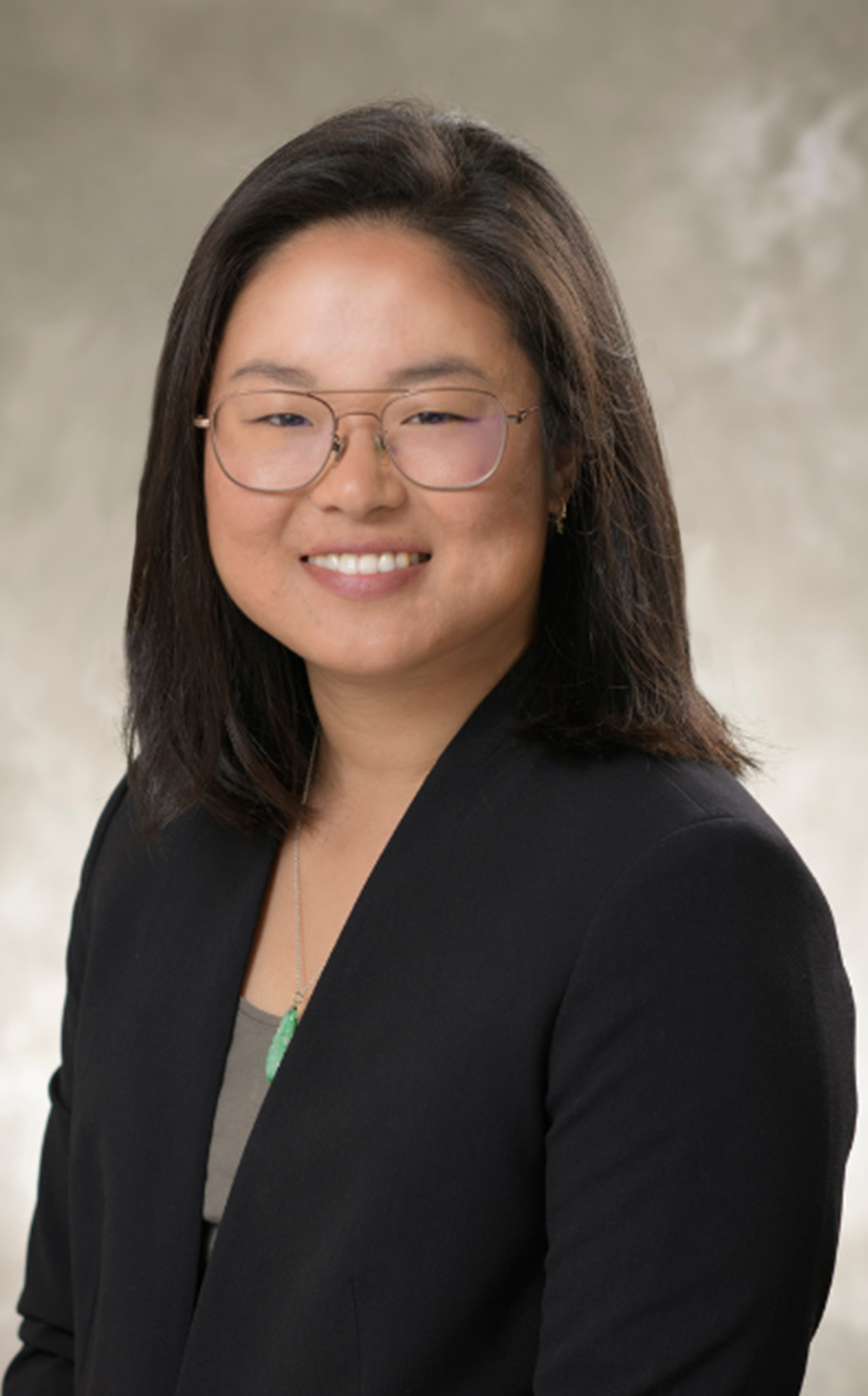Article
 Kelly Chang
Kelly ChangKelly Chang is a sixth-year Ph.D. student in the Department of Materials Science and Engineering at the University of Illinois Urbana-Champaign.
At the Beckman Institute, Chang is a member of the Autonomous Materials Systems Group led by Professor Nancy Sottos. She closely collaborates with Ioannis Chasiotis, a professor of aerospace engineering. Chang's research focuses on developing regenerative strategies for enhanced durability of polymers for direct exposure to low Earth orbit — in other words, self-healing materials in space.
Hometown: Westport, Connecticut
What is the most important question you want to answer through your research?
We are interested in understanding and developing durable polymeric materials for direct exposure to low-Earth orbit. Specifically, we hope to employ regenerative strategies whereby the material self-heals or self-protects when exposed to elements in low Earth orbit, namely atomic oxygen.
What made you first take an interest in your field?
As a kid, my favorite pastime was sailing on the Long Island Sound. Being such a technically rigorous sport, sailing attracts many engineers, so I spent a lot of time with nerdy tinkerer types who influenced my decision to pursue a bachelor's in mechanical engineering. I later interned as a research assistant at North Sails, the world’s leading developer of high-performance sails, where I found a passion for composite materials research. That’s why I’m here now, working on aerospace composite materials research.
Beckman’s mission is to build a better world. How does your research make the world better?
Most manmade spacecraft, including the satellites that provide our everyday cell service, reside in low Earth orbit. Because of that, low Earth orbit is also heavily littered with space debris which ultimately collide with our space structures and significantly reduce their usable lifespan. Ultimately, in developing self-protecting space materials, we can address the limited lifespan of manmade spacecraft and therefore reduce the frequency of often dangerous repair missions and slow the production of space junk.
Describe a transformative moment or experience you have had at Beckman.
I can’t recall any single transformative Beckman moment, but the general experience of being a researcher among so many brilliant scientists is both humbling and inspiring. I get to come here every day, learn from the best, access the best resources, and join in the mission of pushing the scientific frontier.
Being a student is hard. What advice do you have for the next generation?
My No. 1 piece of advice is to end every day with something successful or rewarding, even if it’s something as small as sending an email. For example, I spend a few hours a week tutoring local high school students in their STEM classes. I like to schedule these tutoring sessions at the end of a lab day so that no matter the outcome of a tricky experiment, I can end my day doing something helpful for an aspiring STEM-ist that is also confidence-boosting and personally rewarding.
Secondly, decide on the things you will not compromise on when you have limited time. For me, that’s sleep and exercise. Not only are they essential for my everyday comfort, but I am a better researcher when I am well-rested and healthy. Ten tired hours in the lab are less productive than three alert, healthy hours.
Who or what has influenced you the most?
My failures always end up being the most influential moments in my life. I once tried out for my high school soccer team, but I didn’t make the cut because I couldn’t run a mile fast enough. I was devastated at the time. I then joined the sailing team (they didn’t make cuts), which was really the nucleation point for my passion for high-performance materials and how I met many lifelong friends. Things worked out the way they were supposed to, and I remind myself of this often.
What are you passionate about?
At the Sottos Group Secret Santa this year, my lab-mate Pranav gave me a notebook that said, “I just want to go sailing and hang out with my dog” on the cover. It was perfect. I love racing, tinkering with, and just generally being around sailboats. I took my dog sailing once, and that was just about the best day ever.
Imagine that you’re the host of a new podcast. What is it about?
I would love to sit down and just interview everyday people about their lives. I think we’d be a better world if we listened to and empathized with each other more.
What is your favorite book and what life lesson has it taught you?
"Ishmael" by Daniel Quinn. It’s a very philosophical novel about a lot of things, but basically a talking gorilla helps his human pupil see modern civilization in a less self-serving way. My main takeaway is that any mission to control nature instead of embracing and learning to participate in it will be both destructive and unsuccessful. Read it. It’ll really make you think.
Tell us about your post-university plans!
I’m thrilled to be joining General Electric Research in Niskayuna, New York, as a research scientist after I graduate. I will be working on developing and characterizing aerospace-grade ceramic and polymer matrix composites.
Speed Round:
Favorite song at the moment: "Dreams" by Fleetwood Mac
Something you’re looking forward to in the next month: Spring
What do you like to do in your free time outside of the lab? I race sailboats! Go check out the Clinton Lake Sailing Association.
Beckman Institute for Advanced Science and Technology